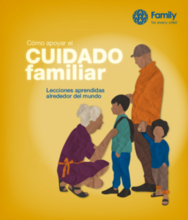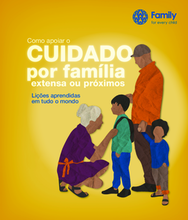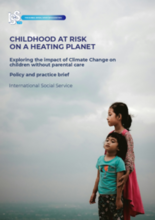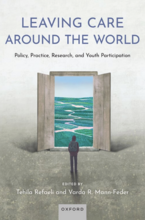Displaying 31 - 40 of 4424
📅 Date: 4 December 2025
⏰ Time: 10:00 – 11:30 SAST | 11:00 – 12:30 EAT | 08:00 – 09:30 BST
Las niñas o niños que no pueden ser cuidados por sus madres o padres a menudo viven con familiares o amigos de la familia. Este tipo de cuidado se le conoce cómo cuidado familiar.
As crianças que não podem ser cuidadas por seus pais geralmente vivem com parentes ou amigos da família. Esse cuidado é conhecido como cuidado por família extensa ou próximos.
Climate change is increasingly recognized as a child rights crisis, with children without parental care being particularly vulnerable to its impacts. This brief highlights how climate change heightens risks of losing parental care, creates unaccompanied children, and disrupts alternative care systems, and it offers recommendations for policymakers and practitioners to prevent separation and protect these children.
This book chapter examines the child welfare system, parental challenges, and family resistance, presenting a theoretical framework for building family resilience. It highlights stressors such as financial instability and mental health issues, and emphasizes collaborative, dignity-centered strategies that combine social work, mental health, and community support to improve outcomes for parents and children.
This book reflects two decades of work by the International Network on Transitions to Adulthood from Care (INTRAC) to advance academic research and policy reform on leaving care globally. It includes thirty-two country chapters, each providing background information and key statistics on children in care and care leavers based on available national data.
The Collaborative on Global Children’s Issues is excited to invite leaders on the front lines of preventing and responding to child-family separation to apply to be a part of&nb
This report examines how rising child poverty, social exclusion, and anti-rights movements across Europe threaten children’s rights, emphasizing the urgent need for collective action and strong civil society engagement. Focusing on vulnerable children, it reviews progress on the European Child Guarantee and broader rights issues—from mental health and protection systems to digital rights, housing, and social investment.
Date and Time: November 19th, 10:00am – 11:30am EST





